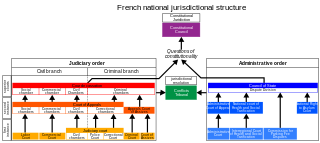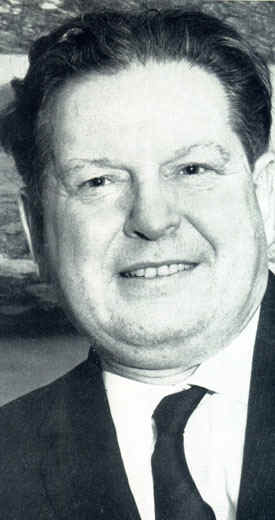A mixed economy is an economic system that accepts both private businesses and nationalized government services, like public utilities, safety, military, welfare, and education. A mixed economy also promotes some form of regulation to protect the public, the environment, or the interests of the state.

Direct democracy or pure democracy is a form of democracy in which the electorate decides on policy initiatives without elected representatives as proxies. This differs from the majority of currently established democracies, which are representative democracies. The theory and practice of direct democracy and participation as its common characteristic was the core of work of many theorists, philosophers, politicians, and social critics, among whom the most important are Jean Jacques Rousseau, John Stuart Mill, and G.D.H. Cole.
Private property is a legal designation for the ownership of property by non-governmental legal entities. Private property is distinguishable from public property, which is owned by a state entity, and from collective or cooperative property, which is owned by one or more non-governmental entities.
Libertarian theories of law build upon classical liberal and individualist doctrines.

The Road to Serfdom is a book by the Austrian-British economist and philosopher Friedrich Hayek. In the book, Hayek "[warns] of the danger of tyranny that inevitably results from government control of economic decision-making through central planning." He further argues that the abandonment of individualism and classical liberalism inevitably leads to a loss of freedom, the creation of an oppressive society, the tyranny of a dictator, and the serfdom of the individual. Hayek challenged the view, popular among British Marxists, that fascism was a capitalist reaction against socialism. He argued that fascism, Nazism, and state-socialism had common roots in central economic planning and empowering the state over the individual.

Liberty is the state of being free within society from oppressive restrictions imposed by authority on one's way of life, behavior, or political views. The concept of liberty can have different meanings depending on context. In Christian theology, liberty is freedom from the effects of "sin, spiritual servitude, [or] worldly ties". In the Constitutional law of the United States, Ordered liberty means creating a balanced society where individuals have the freedom to act without unnecessary interference and access to opportunities and resources to pursue their goals, all within a fair legal system.
The nature of capitalism is criticized by left-wing anarchists, who reject hierarchy and advocate stateless societies based on non-hierarchical voluntary associations. Anarchism is generally defined as the libertarian philosophy which holds the state to be undesirable, unnecessary and harmful as well as opposing authoritarianism, illegitimate authority and hierarchical organization in the conduct of human relations. Capitalism is generally considered by scholars to be an economic system that includes private ownership of the means of production, creation of goods or services for profit or income, the accumulation of capital, competitive markets, voluntary exchange and wage labor, which have generally been opposed by most anarchists historically. Since capitalism is variously defined by sources and there is no general consensus among scholars on the definition nor on how the term should be used as a historical category, the designation is applied to a variety of historical cases, varying in time, geography, politics and culture.

French law has a dual jurisdictional system comprising private law, also known as judicial law, and public law.

Bruno Leoni was an Italian classical-liberal political philosopher and lawyer. Whilst the war kept Leoni away from teaching, in 1945 he became Full professor of Philosophy of Law. Leoni was also appointed Dean of the Department of Political Sciences at the University of Pavia from 1948 to 1960.

The Constitution of the Republic of Kazakhstan is the highest law of Kazakhstan, as stated in Article 4. The Constitution was approved by referendum on 30 August 1995. This date has since been adopted as the "Constitution Day of the Republic of Kazakhstan".
Law, Legislation and Liberty (1973–1979) is a work in three volumes by Nobel laureate economist and political philosopher Friedrich Hayek.

Law is a set of rules that are created and are enforceable by social or governmental institutions to regulate behavior, with its precise definition a matter of longstanding debate. It has been variously described as a science and as the art of justice. State-enforced laws can be made by a group legislature or by a single legislator, resulting in statutes; by the executive through decrees and regulations; or established by judges through precedent, usually in common law jurisdictions. Private individuals may create legally binding contracts, including arbitration agreements that adopt alternative ways of resolving disputes to standard court litigation. The creation of laws themselves may be influenced by a constitution, written or tacit, and the rights encoded therein. The law shapes politics, economics, history and society in various ways and also serves as a mediator of relations between people.
Constitutional economics is a research program in economics and constitutionalism that has been described as explaining the choice "of alternative sets of legal-institutional-constitutional rules that constrain the choices and activities of economic and political agents". This extends beyond the definition of "the economic analysis of constitutional law" and is distinct from explaining the choices of economic and political agents within those rules, a subject of orthodox economics. Instead, constitutional economics takes into account the impacts of political economic decisions as opposed to limiting its analysis to economic relationships as functions of the dynamics of distribution of marketable goods and services.
Types of democracy refers to the various governance structures that embody the principles of democracy in some way. Democracy is frequently applied to governments, but may also be applied to other constructs like workplaces, families, community associations, and so forth.
The following outline is provided as an overview of and topical guide to politics and political science:
Democratic socialism is a left-wing set of political philosophies that supports political democracy and some form of a socially owned economy, with a particular emphasis on economic democracy, workplace democracy, and workers' self-management within a market socialist, decentralised planned, or democratic centrally planned socialist economy. Democratic socialists argue that capitalism is inherently incompatible with the values of freedom, equality, and solidarity and that these ideals can only be achieved through the realisation of a socialist society. Although most democratic socialists seek a gradual transition to socialism, democratic socialism can support revolutionary or reformist politics to establish socialism. Democratic socialism was popularised by socialists who opposed the backsliding towards a one-party state in the Soviet Union and other nations during the 20th century.
The law of Malta incorporates continental law, common law and local traditions, such as Code de Rohan. A municipal code was enacted in 1784 and replaced in 1813. Maltese law has evolved over the centuries and reflected the rule of the context of the time. At present Malta has a mixed-system codification, influenced by Roman law, French Napoleonic Code, British Common Law, European Union law, international law, and customary law established through local customs
The socialist mode of production, or simply (Marxist) socialism or communism as Karl Marx and Friedrich Engels used the terms communism and socialism interchangeably, is a specific historical phase of economic development and its corresponding set of social relations that emerge from capitalism in the schema of historical materialism within Marxist theory. The Marxist definition of socialism is that of production for use-value, therefore the law of value no longer directs economic activity. Marxist production for use is coordinated through conscious economic planning. According to Marx, distribution of products is based on the principle of "to each according to his needs"; Soviet models often distributed products based on the principle of "to each according to his contribution". The social relations of socialism are characterized by the proletariat effectively controlling the means of production, either through cooperative enterprises or by public ownership or private artisanal tools and self-management. Surplus value goes to the working class and hence society as a whole.
Anarchism and libertarianism, as broad political ideologies with manifold historical and contemporary meanings, have contested definitions. Their adherents have a pluralistic and overlapping tradition that makes precise definition of the political ideology difficult or impossible, compounded by a lack of common features, differing priorities of subgroups, lack of academic acceptance, and contentious historical usage.

The 1973 Constitution of the Syrian Arab Republic was adopted on 13 March 1973 and was in use until 27 February 2012. It describes Syria's character to be Arab, democratic, socialist and republican. Further, in line with pan-Arab ideology, it positions the country as a region of the wider Arab world and its people as an integral part of the Arab nation. The constitution entrenched the power of the Arab Socialist Ba'ath Party, and its 8th Article described the party as "the leading party in the society and the state", effectively ruling Syria as a one-party socialist state under emergency laws.








